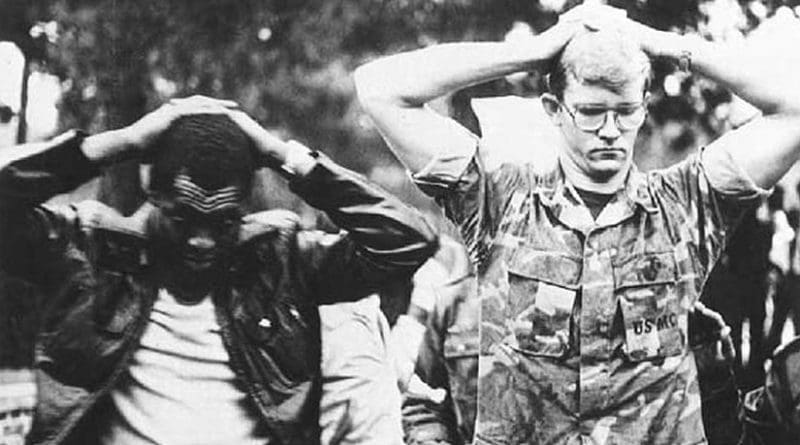Forty Years After The Iran Hostage Crisis, The Tragedy Continues – OpEd
The crisis that began with the taking of US hostages by the Islamic Republic of Iran 40 years ago continues to this day.
On Nov. 4, 1979, months after the toppling of the US-backed Shah of Iran Mohammad Reza Pahlavi, students overran the US Embassy to demand Washington turn over the shah, after he was admitted to a New York hospital with terminal cancer.
Dozens of American hostages were held for 444 days. At the time, the US establishment had to pick between the shah and the revolution. Neither was a good choice and Washington learned quickly what Tehran’s intentions were from those early days.
Images of US diplomats and marines being paraded by mobs of student revolutionaries symbolized the behavior of these new leaders.
Their perfidy continues to this day. The crisis is ingrained in the memories of those who were close to the events, or were watching history unfold from afar.
Emotions still run high over the incident and subsequent actions by the Islamic Republic to embarrass US servicemen — parading them on TV or, in the most dramatic cases, killing them while serving in Iraq. This has meant 40 years of perennial threats of terrorism and kidnapping.
The Iranian regime’s behavior has grown worse over time. Tehran celebrates this anniversary with hatred and scorn. November 4 is known as the National Day of Fight against Global Arrogance. In front of the closed US Embassy, Gen. Abdolrahim Mousavi insisted that Iranian independence occurred on that day.
The dispute with the US rages on over Iran’s right to nuclear research and its definition of human rights.
The 444 day hostage drama, from Tehran’s point of view, was a key period in the history of Iran since the revolution of 1979 that has shaped its foreign policy and its relationship with the US to this day.
Iran is using the anniversary to show that it continues to pursue its ill-considered behavior. Hostage-taking for political leverage is a state-backed policy still used against the US and others.
Four Americans, it is know, are currently detained by Tehran — two on espionage charges, one for unknown reasons, and one for “collaborating” with enemy states.
In addition, former FBI agent Robert Levinson is also being held by Iran. The Trump administration is now offering a reward of up to $20 million for credible information leading to Levinson’s safe return.
Levinson disappeared on Kish Island in Iran, on March 9, 2007. The present-day US captives are a reminder that the Iranian regime is exactly the same as it was 40 years ago, willing to flout international rules of law and behavior.
But more to the point, Iran is using the 40th anniversary to boost its nuclear program. Iran is departing further from the now defunct JCPOA nuclear deal with world powers by announcing it is doubling the number of advanced centrifuges it operates — it now has 60 IR-6 advanced centrifuges in violation of the agreement.
Europe is trying to salvage what is left of JCPOA but it is clear during this 40th anniversary that Iran is still behaving like Iran in 1979. This trend line is illustrative of four decades of trouble and danger that still threatens many countries around the world. Another anniversary is one too many.

